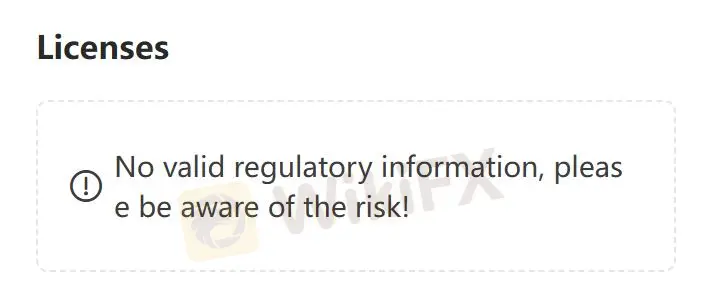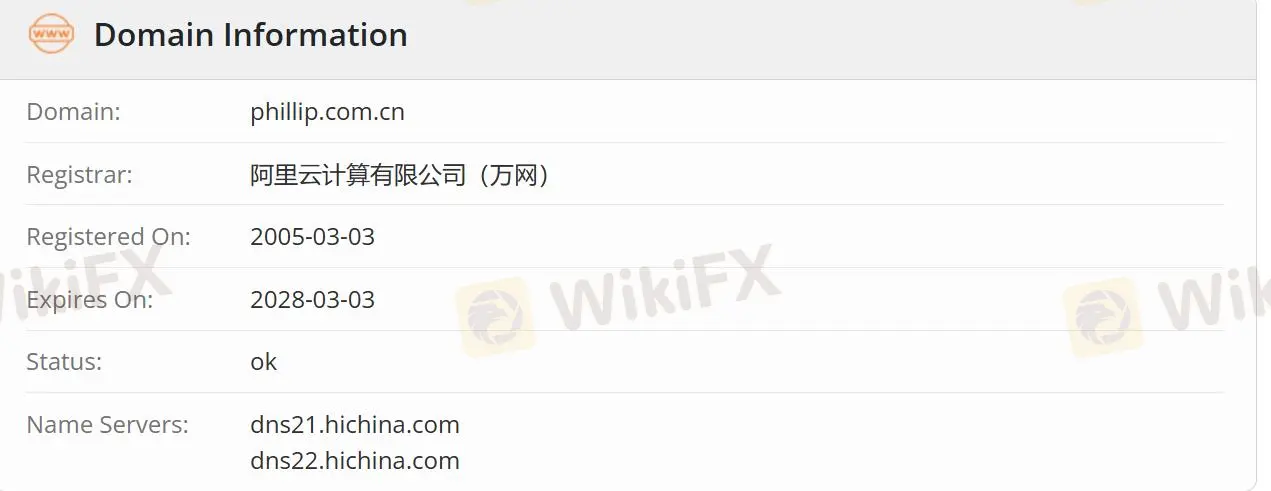PhilipCapital
摘要:PhilipCapital is an unregulated financial company registered in China. The broker's official website has been closed, so traders cannot obtain more security information.
Note: PhilipCapital's official website: https://www.phillip.com.cn/index.html is currently inaccessible normally.
PhilipCapital Information
PhilipCapital is an unregulated financial company registered in China. The broker's official website has been closed, so traders cannot obtain more security information.
Is PhilipCapital Legit?
PhilipCapital is not regulated, which will increase trading non-compliance and reduce traders investment security. Caution is advised when dealing with the company.


Downsides of PhilipCapital
- Unavailable Website
PhilipCapital's official website is currently inaccessible, raising concerns about its reliability and accessibility.
- Lack of Transparency
Since PhilipCapital does not explain more transaction information, especially regarding fees and services, this will bring huge risks and reduce transaction security.
- Regulatory Concerns
PhilipCapital is not regulated, which is less safe than a regulated one.
Conclusion
PhilipCapital Since the official website cannot be opened, traders cannot get more information about security services. In addition, the unregulated status indicates that this brokers trading risks are high. It is advisable to choose regulated brokers with transparent operations to ensure the safety of your investments and compliance with legal standards. Traders can learn more about other brokers through WikiFX. Information improves transaction security.
天眼交易商
热点资讯
e投睿平台的三大罪状 收15%的隔夜费秋后算账
复盘与前瞻:下周财经大事件梳理与交易风险提示
监管变动预警:这个香港机构也是个老六
汇率计算

